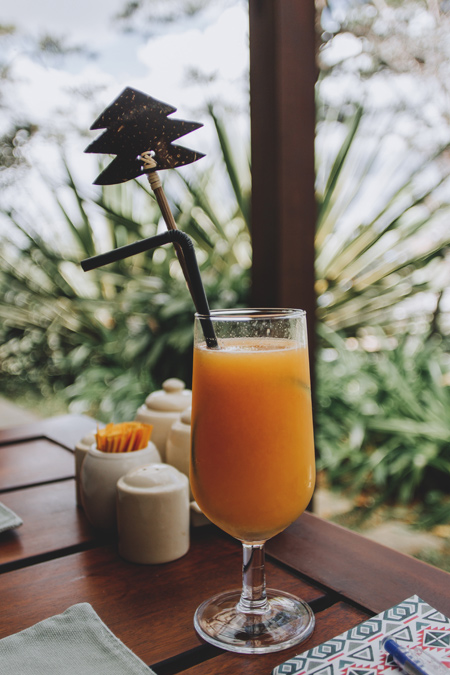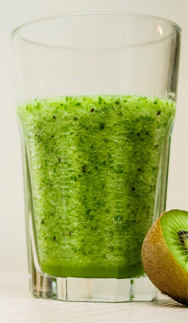The Power of Juicing – And Why You Should Try It Now!

I am neither the healthiest nor the fittest person around. In fact, I actually weigh more than the recommended weight for my height – a very cutesy, petite 5’3. As for my actual weight… well, the weight-height ratio chart suggests that it is supposed to be within the recommended weight for 5’8 women.
In other words, I am quite a bulky person, which is not ordinary. On second thought, my weight may be due to muscles and not fat (so much for wishful thinking).
Despite my statistics, I can say that I am still generally healthy. I have normal blood pressure, blood sugar and cholesterol levels. I ‘go number two’ regularly and rarely get sick. I also get to exercise when I have the time, whether I go to the local gym, have my workout routines at home, do some household chores, or just playing with my 2-year old daughter around the house.
I also do Intermittent Fasting (IF), which is basically more of an eating pattern rather than a weight loss tool. Nevertheless, IF helped me lose 14 pounds in less than two months – along with exercise (albeit not on a regular basis) and healthier food intake.
Obviously, I wanted to lose weight to match my petite frame, and thus researched ways to shed some pounds. In addition, I want to at least get back to my pre-pregnancy weight, slowly but surely. The last reason is quite personal for me. I wanted to lose weight so I can live longer and see my daughter grow into a woman who will also share my interest for healthy living.
Table of Contents
What I’ve learned So Far On My Road To Wellness
With almost a decade of my weight loss journey, from my single lady days up till now, I learned two important things, at least from first-hand experience. First of all, there’s no need to be scared to eat what you want. The magic keyword is moderation.
Eat that chocolate bar, but in moderation. Eat in a fast food restaurant, but in moderation. Drink that refreshing, ice-cold, straight-from-the-chiller soda, but in moderation. You see, food is meant to be enjoyed, but you should also know your limits because as they say, “anything taken in excess is bad” – or something to that effect. But then again, it depends on the type of diet you are following.
The second one is that, exercise is useless if you don’t watch what you eat AND how much you eat. It may sound contradicting to my first realization, but hear me out first. Exercising does not excuse you to eat unhealthy foods. “I can eat what I want because I’ll burn it anyway.” Guess what? That’s the worst mindset you can have.
At the end of the day, eating healthy — including green leafy vegetables, fruits, lean meats — is still the way to go if you want to maximize the full benefits of a healthy diet and exercise.
Is Your Fruit Juice Really Healthy?
 Okay, I have already said a mouthful about my weight loss journey and my pseudo words of wisdom, so now let’s talk about something else that is still related to food. In this article, we are going to talk about juicing.
Okay, I have already said a mouthful about my weight loss journey and my pseudo words of wisdom, so now let’s talk about something else that is still related to food. In this article, we are going to talk about juicing.
Drinking juice has been part of our lives ever since we were kids. Your mom has probably served you one in a drinking glass as part of your breakfast. Your school cafeteria may have offered them along with your school lunch.
I also have fond memories of sipping fruit juices of assorted flavors – grapes, strawberry, orange, and many more – from juice packs. Even my 2-year old has already tasted fruit juice I brought for her from the local supermarket (Disclaimer: I do not let my daughter drink commercial fruit juice very often. Here’s why.)
While most juices available in the market come in various serving sizes, most of them are not really “healthy” as we think they are. Either these already contain additives or basically made of water with artificial fruit flavoring. Plus, it contains lots of sugar, so drinking commercial fruit juices may not be a healthy choice, either.
Given these reasons, you may want to skip those packed juices altogether, and stick to going natural. How? Make your own healthy juice!
Your Daily Dose Of Fruits And Veggies In Liquid Form
The good news is that by making your own healthy juice, you don’t have to endure one just because of the universal belief that “if it tastes bad, it’s good for the health.” Instead, there are a lot of combinations and options you can choose from in making your own homemade healthy juice!
Making your own health juice can be fun, too. Just toss your favorite fruits and vegetables (yes, you read that right – veggies in your juice!) into the blender, juicer, or even by hand, wait for the vibrant-colored juice to come out of it, pour the contents into a tall glass, add some garnishing, and you can now enjoy your own healthy juice!
First timers are advised to drink juiced fruit and vegetable before a meal as an appetite suppressant. As a result, you will eat less which can aid in weight loss. Likewise, juicing is way healthier than drinking soda.
What Can We Get From Health Juices / Juicing?
First of all, you get all the nutrients you need when you make your own health juice. Unlike commercial juices available on the market, which mostly contain additives and loads of sugar, health juices contain all the vitamins and minerals your body needs. Homemade health juices also contain fiber that is helpful for your digestive health.
In reality, we cannot eat baskets of vegetables or fruits in one sitting. Moreover, we are not able to consume a variety of vegetables in a day, perhaps around two or three on average. With juicing, consuming your daily dose of veggies and fruits can be easier and more efficient.
Plus, with juicing, you can get to experiment with various fruits and vegetables you may have not even tasted in your entire life, and turn it into a healthy juice. Who knows, that fruit or vegetable you have been ignoring all this time may be your new favorite!
In making your own health juice, experts recommend following the 80-20 ratio: 80 percent vegetables and 20 percent fruits. Likewise, it is better to limit consumption or the inclusion of high-fructose fruits into your health juice, such as apples. Fruits also contain natural sugars. Although it is not the kind of sugar we see in the market, sugar is still sugar that should not be consumed in large doses.
Sure, some health juices may taste like bitter medicine. One tip: add lemons or green apple into your juice. While apple is considered a high-fructose fruit, it is important to note that green apple has the lowest sugar content among all the apple variants around. Eventually, you can get used to the taste of it.
Juicing is more than just focusing on its taste. It also provides health benefits and fights certain illnesses the natural way. For one, health juices can help keep our gut health on track.
In addition, certain health juices also have their own health benefits. For example, freshly-squeezed orange juice helps prevent inflammation, while a glass of freshly-squeezed lemonade (add a little honey if you want to counteract its sourness) helps prevent kidney stones.
On the other hand, grape juice is a great source of antioxidants that help improve brain function and memory, while cranberry juice is known for its anti-UTI (urinary tract infection) properties. Of course, it is better to use real fruits when making these concoctions.
Juicing also helps detoxify our bodies. We are now living in a world where everything is instant. We prefer instant coffee, instant noodles, easy-cook macaroni and cheese, fast-food meals, and pizza deliveries over lovingly-prepared home-cooked meals – all because we have been too busy and stressed to cook one decent and healthy meal for ourselves.
Add to our unhealthy food choices is our unhealthy and sedentary lifestyle, especially if your work requires you to be glued to your desk for 8 hours. Naturally, our bodies deserve some detoxing, and one effective way to do that is through juicing. By juicing, it helps nourish our bodies with nutrients that will help flush out toxins and make us feel clean within.
If you always eat oily food, chances are you will get oily skin and some breakouts, too. In case you don’t know yet, juicing can help your skin clear up. It works by allowing our bodies to absorb the nutrients and maximize its full benefits on our skin.
As mentioned earlier, juicing can help with detoxification. In this case, some people do juice fast to aid in weight loss. In juice fasting, people would replace their normal meal with juicing for a few days or up to a few weeks. While this weight loss method has no concrete scientific proof in terms of effectiveness, many people swore by its swift weight loss effects.
Can Juicing Help Fight Cancer, Too?
 Juicing can also help fight bigger diseases, including cancer. Chemotherapy can take a toll on your physical and emotional well-being, as well your financial capabilities. As a result, many people have already resorted to cheaper and more natural alternatives, with the hopes of winning their biggest battle yet.
Juicing can also help fight bigger diseases, including cancer. Chemotherapy can take a toll on your physical and emotional well-being, as well your financial capabilities. As a result, many people have already resorted to cheaper and more natural alternatives, with the hopes of winning their biggest battle yet.
While there are no definite scientific evidences as to the cancer-fighting properties of juicing, it can still enable you to consume fruits and vegetables more efficiently. In particular, patients with cancer or other serious medical condition, or anyone who is on the way to recovery can benefit a lot from juicing because it is easier to swallow and keep their bodies nourished and laden with nutrients the body needs.
A Word Of Caution
While juicing has a lot of health benefits, it does have some downsides. For one, weight loss by means of juicing may only be effective in the short-term. Most juice diets have fewer calories than solid foods, which makes it an effective weight loss method. However, you are more likely to have a “rebound” weight gain after your calorie intake has gone to the usual after your day- or weeks-long juice fast.
In addition, it may be normal for you to feel hungrier due to the lack of intake of solid foods. This is because solid foods mostly contain fiber and protein that helps suppress appetite, as compared to juice diets. Prolonged juice diets can also lead to reduced muscle mass due to the lack of protein intake.
In the long run, juicing can provide some health risks, so you should be careful when you do juicing. While juicing is generally a healthy addition to your diet, it can deprive you of some significant nutrients that are only present in meat and other food sources such as calcium (mostly present in dairy products) and protein (present in animal meat).
In effect, such lack of nutrients can compromise your immune system and you’re more likely to get sick easily. Likewise, you may also feel weak and lethargic because you feel hungrier while juice-fasting.
In Closing
Juicing has been around for some time now. In fact, so much of the popularity of juicing / health juices that several manufacturers have taken advantage of the juicing hype by launching juicer machines that aim to cater to juice diet fans and enthusiasts and health-conscious individuals in general.
Nevertheless, most of us would do just about anything to keep our health in check. There’s regular exercising, adapting a balanced diet, and juicing. Juicing, when done right, can definitely do wonders on your body. While there are some downsides on health juices, the pros still outweigh the cons. After all, fruits and vegetables will still beat sweets and fatty foods any day in terms of nutrient content.
Juicing is not just a fad; it can be part of your lifestyle, too. In fact, you can incorporate it into your everyday diet so you can enjoy its maximum benefits for a better overall health!
Author Bio:

Nicole is a freelance writer and educator based in the Michigan and believes that her writing is an extension of her career as a tutor since they both encourage learning and discussing new things. When she isn’t writing, you might find Nicole running, hiking, and swimming, she’s participated in several 10K races and hopes to compete in a marathon one day.

Leave a comment